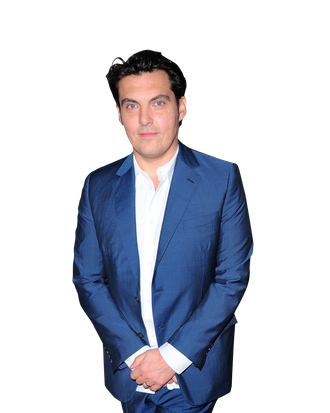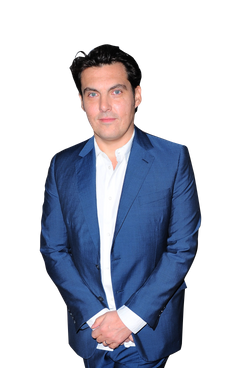

Usually, when an action movie stars a woman in the lead role — or a girl, for that matter — it means you’re in for some black leather and cleavage shots. Not so with Hanna, director Joe Wright’s first foray into the genre and his second collaboration with Saoirse Ronan (Atonement). Ronan stars as the title character, a teenager trained by her father (Eric Bana) deep in the woods of Finland to assassinate their CIA enemy (Cate Blanchett). Vulture spoke with Wright about his aversion to middle-aged pole dancers, his lifelong connection to The Little Mermaid, and why he’s sorry he picked on Sucker Punch.
Do you consider Hanna a feminist movie?
Yes, I do. Its first objective is to be a piece of entertainment. But I do consider it to be a reaction against a kind of prevailing sexual objectification of young women.
Is that why you dressed Hanna the way you did? Her clothes aren’t at all revealing.
I very specifically didn’t want to sex her up. I didn’t want her to be sexualized in any way. Partly because I think the character exists outside of gender, in the same way that perhaps an angel does; and partly because I didn’t want her to exist within the kind of binary-opposition thinking. Her personality as a female is not reliant on there being a male.
You recently called out Zack Snyder for sexualizing women in his film Sucker Punch.
I regret doing that because I feel it’s very unfair to talk disparagingly about any other director’s work. And so I regret doing that on that level. But there is a pervading culture — in the same panel, I also talked about Abercrombie & Fitch selling a push-up bra for 8-year-olds. As a man, it’s quite a difficult area to talk about, because one can’t help but feeling hypocritical sometimes in terms of sexually objectifying women, do you know what I mean? It’s a difficult area for us to talk about, but I think it’s an area that’s certainly worth talking about.
Well, it’s a difficult area for feminists to talk about, or women to talk about, because there’s also the argument that women can wear whatever they want. Why assume they’re being objectified?
It’s a whole structure of cultural thinking that needs to be addressed. It’s so vast that we often feel there’s no point in even tackling it. But, personally, I think we have to tackle it. I mean, I know women in their 30s and 40s, very sensible, intelligent women, who have suddenly taken up pole dancing lessons. And there’s a kind of suggestion that it’s ironic or kind of camp or something. But for me, it’s … don’t like irony. I find irony to be quite cruel. It alarms me.
This is your first action film. What did you want to bring to the genre going in?
I think Paul Greengrass taught us with Jason Bourne that it was possible to make an action film with a social and moral conscience. I hate the traditional, testosterone-driven, misogynist, right-of-center action movies that have absolutely no regard for their subtext whatsoever. I felt that it was possible to make a film that was entertaining first and foremost, but then also had some honesty to it.
Are you trying to send a message?
No — I hate messages. I’m really wary of ever suggesting that I have any right to send a message. I’d rather hold a mirror than a placard. I felt like I got into trouble with that on The Soloist. I felt that with that film, I really had a message, and yet I got very badly stung by that experience. It was the film in which I felt most self-righteous, and I think that’s always a signal that you’re going to crash.
There’s a dark, fairy-tale element to the film. Why did you add that twist?
I was interested in making a film that was kind of a fantasy, but not like a CGI, Hollywood fantasy. I wanted it to be almost like a dream space, like there’s something off. There’s some kind of menace. And then, for personal-history reasons: My parents have a puppet theatre in London and they staged fairy-tale puppet shows — The Little Mermaid, Rapunzel. So I’ve watched all these stories thousands and thousands of times; literally, my cradle was under the stage. So it’s part of my own subconscious, my own makeup.
You’re directing a live-action Little Mermaid, right?
I hope to. To be honest, I started off that process a few years ago, trying to figure out how to do it, and there seem to be quite a lot of fairy-tale films. So now I might wait a little while and not be in that herd. Bit annoying, though, because I really wanted to do it.
Yeah, and The Little Mermaid does seem like a less obvious one.
Well, The Little Mermaid is the story of Hanna. The idea that she grows up under the surface and imagines the world above as this beautiful, romantic place. And of course she gains legs and they are painful, and she discovers the world is quite cruel. Personally, growing up in this puppet theatre, this very romantic environment where everyone was painting and making puppets, then suddenly being told I had to go to school where kids bullied you and it was terrifying — in a way I identify both with The Little Mermaid and Hanna. The only thing I could accuse my parents of after years of therapy was that they led me to believe very sweetly that the world was going to be beautiful — and, often, it’s not.
That sounds like a message.
Fuck, fuck, fuck, damn.
Some people have called out the accents in the film, especially Cate Blanchett’s, for sounding weird.
I felt her accent was wonderful. I quite like the southern American accent. I find it quite sexy. That’s why I wanted her to have a southern American accent. People have suggested an allusion to Bush as well. I won’t deny it, although I wouldn’t confirm it either.
The Chemical Brothers soundtrack is phenomenal. What was the process like, working with them?
I’ve known them for a long time, so we have an understanding. For the strip-club theme, for instance, I said to Tom [Rowlands] something like, “I want a theme for a hermaphrodite, sadist strip-club owner that’s a fucked-up fairy tale” — and that’s what he came up with.
And what do you think about this trend of musicians like Trent Reznor scoring films?
I thought I was having a really fucking original idea and then suddenly I find out Trent Reznor’s doing it. Whatever.




